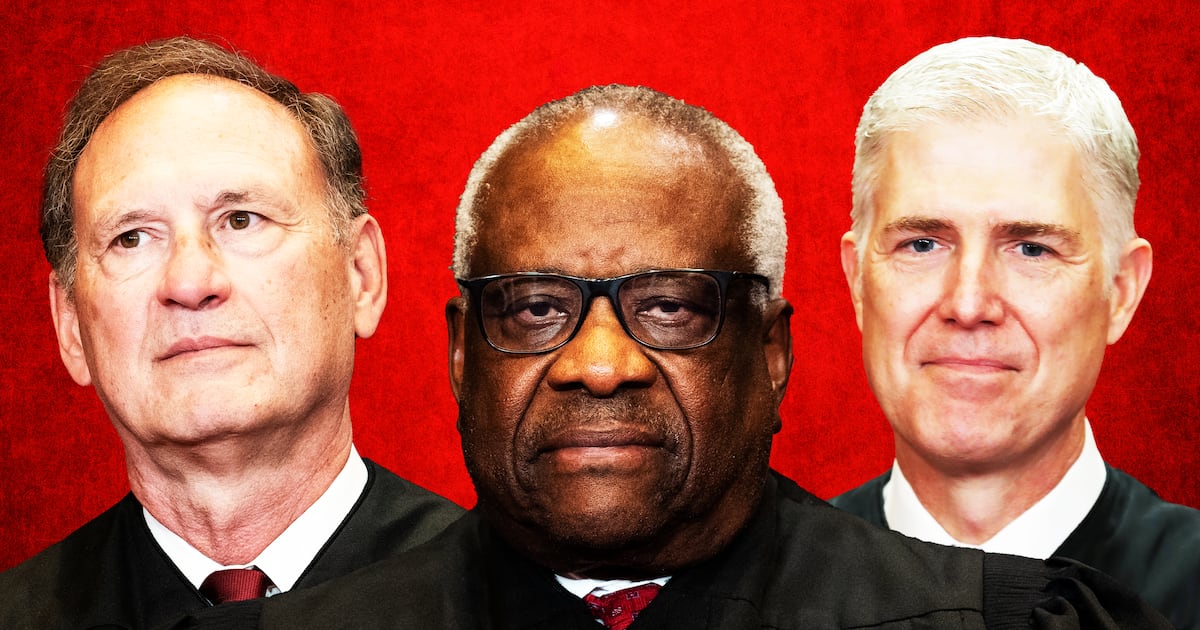A group of Islamist militants aligned with the Taliban has been holding an American man hostage for more than a year, according to U.S. officials and others familiar with his case, which has not been reported previously.
The disclosure of another American hostage raises questions about how many Americans are being held abroad—and what the U.S. government is doing to recover them. The Obama administration has been working to streamline its hostage rescue efforts, which critics say have suffered from a lumbering bureaucracy that hasn’t kept family members fully informed about their loved ones. How effective those efforts have been is unclear.
The Daily Beast is not publishing the man’s name or many details about him at the request of his family and administration and law enforcement officials, who are concerned for his safety. The man is said to be held by the Haqqani network, a Taliban-aligned group that operates along the border of Afghanistan and Pakistan.
ADVERTISEMENT
Previously, The Daily Beast had agreed not to write anything at all about the hostage. However, on Monday, Rep. Duncan Hunter (R-CA), a leading critic in Congress of the Obama administration’s hostage rescue and recovery policies, wrote a public letter to President Obama in which he noted that “there are still Americans in captivity in the Afghanistan-Pakistan region.”
The only other American known to be held in that region is Caitlin Coleman, who was kidnapped along with her husband, Joshua Boyle, a Canadian citizen, while traveling in Afghanistan in 2012. Coleman had a child while in captivity, multiple U.S. officials have said.
While Hunter’s letter mentions no American hostages by name, a spokesperson for the congressman told The Daily Beast that by “Americans” the lawmaker is referring to “all Americans,” including Coleman, her child, and the American man being held.
The exact details of the man’s kidnapping remain unclear.
The militants said to be holding him have not made any public demands concerning his possible release. The Haqqani are known to negotiate for their captives and have conducted prisoner exchanges. A former government official in Afghanistan said the American man is alive and in good health, although his precise whereabouts remain unknown both to local officials and those in the United States.
U.S. and foreign sources knowledgeable about Coleman and her family’s case told The Daily Beast that they believe she, her husband, and their child are also alive and well. The family is also believed to be held by the Haqqani.
Coleman’s case differs from the American man’s in key respects. Her family, along with her husband’s, decided to issue a public appeal for their children’s safe return. And Coleman and Boyle have appeared in a video asking their governments to work for their release.
Efforts to recover all U.S. hostages are now under the control of a new Hostage Recovery Fusion Cell established in the wake of the abduction and killing of four Americans at the hands of the so-called Islamic State widely known as ISIS. Families of some of those hostages had publicly criticized the Obama administration for not communicating with them about the fate of their loved ones and of bungling attempts to free them.
The White House declined to comment for this story.
In his letter to Obama, Hunter said he was concerned that the FBI has been put in charge of the new cell and said the president should appoint a new hostage recovery coordinator, as required by a recently enacted defense bill.
“Given that the FBI is chiefly a law enforcement organization, it remains my belief that the FBI—despite its best intentions and efforts—is neither organized nor developed to lead hostage recovery in hostile areas,” Hunter wrote.
However, some family members of Americans now being held hostage have told The Daily Beast that the new fusion cell has improved communication and the flow of information from the government to families and bolstered their confidence that the U.S. government is working to recover their loved ones.
The efforts to recover Coleman and her family, as well as the other American hostage, can be seen as a test case for how well the new fusion cell is working. But the fact that they’ve been in captivity so long suggests that efforts to free them have been slow going.
The Haqqani are known for negotiating ransom payments and prisoner exchanges, U.S. officials have said. Most notably, the group exchanged Army Sgt. Bowe Bergdahl for five senior Taliban fighters in 2015.
The administration justified that swap under what it says are long-standing traditions to exchange military prisoners in times of war. But the trade has also outraged some hostage families, who say their loved ones are being treated differently because they don’t wear a military uniform.
The White House has said that about 30 Americans are being held hostage outside the U.S. In Iran, at least four Americans are being held, including Washington Post journalist Jason Rezaian, Marine veteran Amir Hekmati, pastor Saeed Abedin, and businessman Siamak Namazi. A former FBI agent, Robert Levinson, went missing in Iran in 2007 and is believed to have been kidnapped.
American journalist Austin Tice has been missing since August 2012, when he disappeared south of Damascus. His fate remains unknown, and his family has launched a public campaign to draw attention to his case and spur efforts to bring him home.
— with additional reporting by Kimberly Dozier and Nancy A. Youssef





